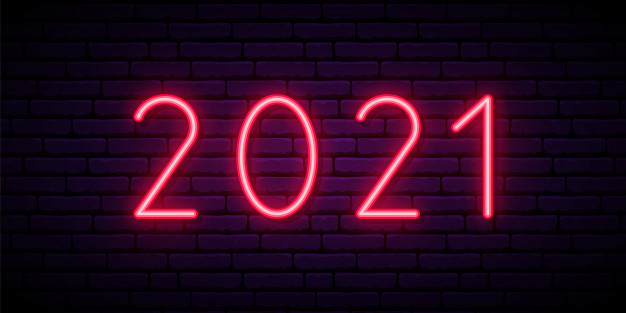December 17, 2020
2020 has been an eventful year in music, and although much of the chaos is a result of the pandemic, the normal evolution of the business had a lot to do with it as well. With that in mind, here are my 10 music business predictions for 2021 in no particular order.

1 – Music Venues Adapt To The New World
Despite the support from the Save Our Stages act, 50% of venues will still close regardless of the funding. Many will have lost leases, and face increased insurance costs and neighborhood gentrification that will make reopening not an option. That said, new venues will pop up to take their places (the entertainment industry hates a vacuum), although that most likely won’t start until 2022.
2 – The TikTok Allure Declines
TikTok use may have peaked in 2020 thanks to the pandemic, but 2021 will see the slow decline of the video platform. With all the major streaming platforms introducing their own short video versions as well as direct competitors like Triller, it will be a death by a thousand cuts. Plus TikTok’s major demographic of 13 to 24 is both extremely fickle and more likely to grow out of the need to use it daily. There is no new “latest thing” on the horizon yet, but something new under the radar may emerge soon to make the platform even less attractive.
3 – The TikTok Lawsuit Fizzles
The Biden administration will concentrate on bigger fish to fry than a no-win attempt to get parent Bytedance to shed its U.S. operations to an American company. The Chinese government was never going to allow it, and there are plenty of other things for the Justice Department to concentrate on than a potential threat that was never proven.
4 – Facebook Just Gets Bigger
Speaking of lawsuits, there are plenty of state and federal government agencies that want to break up Facebook into its separate parts of Facebook, Instagram and WhatsApp. While that might happen (but not until 2022 at least), nothing would change, as the influence of each of those companies on its users (the main core of contention) would remain the same. That’s a lot of effort to maintain the status quo. Meanwhile Facebook continues to grow as the younger demographic loathe to use the social network only last year finds its way back to the platform.
5 – Podcasting Peters Out
This year has seen the rush to podcasting as streaming companies see it as a way to increase revenue without the giant licensing fees, and everyone from celebrities to people who own a USB microphone gets their own show. The problem is that podcasting is hard work, the rewards apply only to the lucky 1%, and the listening public only has so many hours in the day. 2021 sees many podcasters falling by the wayside, especially as a bit of normalcy returns to their everyday lives.
6- The Grammy’s Lose CBS
Thanks to ever declining ratings, a growing boycott by female and rap artists, and general apathy towards award shows, CBS halts the show by the end of its current contract. That puts the Recording Academy in a bind as most of its funding comes from the show, which means that it must totally reorganize in order to survive, shedding its fat cats and bringing it back to its roots. A win for everyone.
7 – Songwriting Changes
Over the past few years many hit songs have had as many as 20 writers, not so much for their contributions but as a hedge against a future plagiarism lawsuit. If you were in the room when it was being created, you received songwriter credit. The pandemic has caused songwriters and producers do less collaboration, meaning fewer writers on a song and a return to more traditional song forms as a result. We’re seeing that happening already with current hits by Taylor Swift and Ariana Grande.
8 – Concert Live Streaming Improves But. . .
A lot of financial resources have been put into live streaming concerts, and while the technology and expertise has improved, so have its costs. Except for a few super high-end exceptions like BTS, most artists find that it’s a break-even proposition at best. Fans find that it doesn’t replace the real concert experience and is generally unsatisfying, although true fans continue to support the acts they love. It’s great when there’s no alternative, but no one has yet to crack the code to make it a true side-by-side experience with live concerts.
9 – Vinyl Gets Yet Another Life
While many in the industry predicted a slow year for vinyl thanks to the Apollo Masters factory fire of last year, that never really happened. Much of that was due to the fact that mastering engineers had already stockpiled blank lacquers, but everyone faced a bleak future in 2021 after those ran out. The development of HD Vinyl, which uses a laser to cut a ceramic disc, could not only save the industry but make the entire vinyl creation process faster and cheaper as well.
10 – Guitar Center Morphs
Guitar Center has emerged from bankruptcy with a lighter debt and its stores intact, but it will become a different business. Already running much smaller inventories and a necessarily smaller staff, GC stores face increasing pressure from online buying, since getting the same gear delivered to your door tomorrow beats going down to a store again to get it. Being lean and mean is great for the bottom line, and being the only game in town means no local competition, but the company will have to reinvent itself in order to survive in the future.
Learn about the Matching Engine
The Matching Engine is a globally used application which can support CMOs across geographies to tackle the challenges posed by modern music streaming. Talk to our team today about how our cloud-native application can be integrated into your matching process.